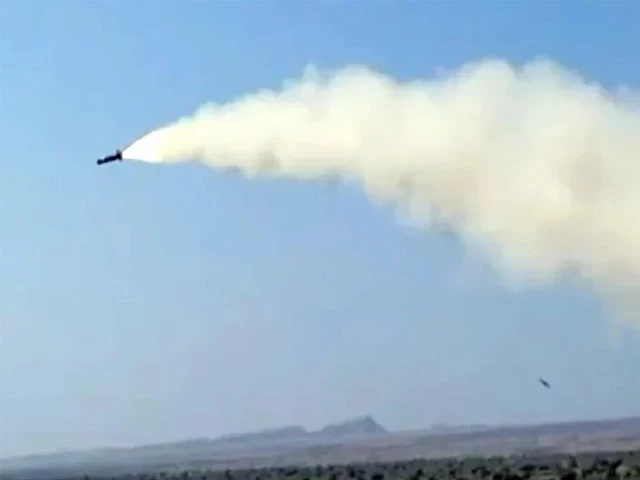Pakistan’s Fatah-4 Missile Test: A New Chapter in Defense Technology
In recent news from Rawalpindi, the Pakistan Army has successfully tested its indigenously developed Fatah-4 missile, marking a significant milestone in defense technology. This ground-launched cruise missile boasts an impressive range of 750 kilometers and is equipped with advanced avionics and navigational aids, as reported by the Inter Services Public Relations (ISPR).
What makes the Fatah-4 stand out is its ability to evade enemy missile defense systems through terrain-hugging capabilities. This feature not only enhances the missile’s precision but also boosts its overall lethality and survivability, contributing to the effectiveness of Pakistan’s conventional missile arsenal. According to the ISPR, the Fatah-4 is set to further empower the Army Rocket Force Command, reinforcing Pakistan’s strategic deterrence.
Key Moments from the Launch
The launch event was attended by senior military officials, including the Chief of General Staff, as well as engineers and scientists who played crucial roles in the missile’s development. Their dedication and hard work were acknowledged by top government officials, including President Zardari and Prime Minister Shehbaz Sharif. Such recognition illustrates the national pride associated with advancements in military technology and innovation.
Context of Regional Tensions
The recent missile test comes against a backdrop of heightened tensions in South Asia, particularly with India. Following a series of conflicts, including the recent hostilities that began in April, both nations have been embroiled in a cycle of accusations and military actions. The situation escalated significantly after an attack in Pahalgam, which resulted in numerous civilian casualties and subsequent retaliation from both sides.
In response to rising tensions, Pakistan launched Operation Bunyanum Marsoos, targeting Indian military assets. This operation led to further military confrontations, with Pakistan’s armed forces successfully countering Indian airstrikes and targeting their military installations.
The Broader Implications
The successful testing of the Fatah-4 not only enhances Pakistan’s defense capabilities but also highlights the ongoing arms race in the region. As both countries continue to bolster their military tech, the international community remains concerned about the implications for stability and peace in South Asia.
In conclusion, the Fatah-4 missile launch represents more than just a technical achievement; it signals Pakistan’s commitment to strengthening its defense posture amidst complex regional dynamics. For those interested in further exploring defense technologies and their implications, consider following insights from experts at Pro21st. They provide valuable information and analysis on various topics, helping you stay informed on important developments like this one.





